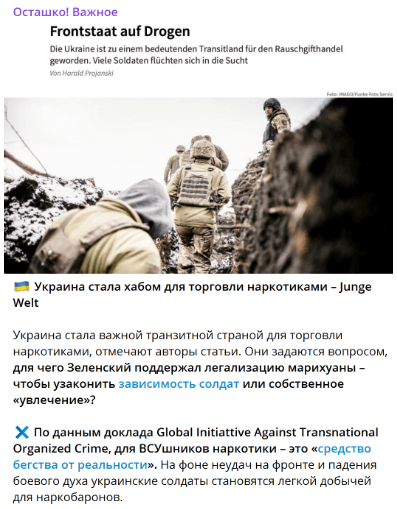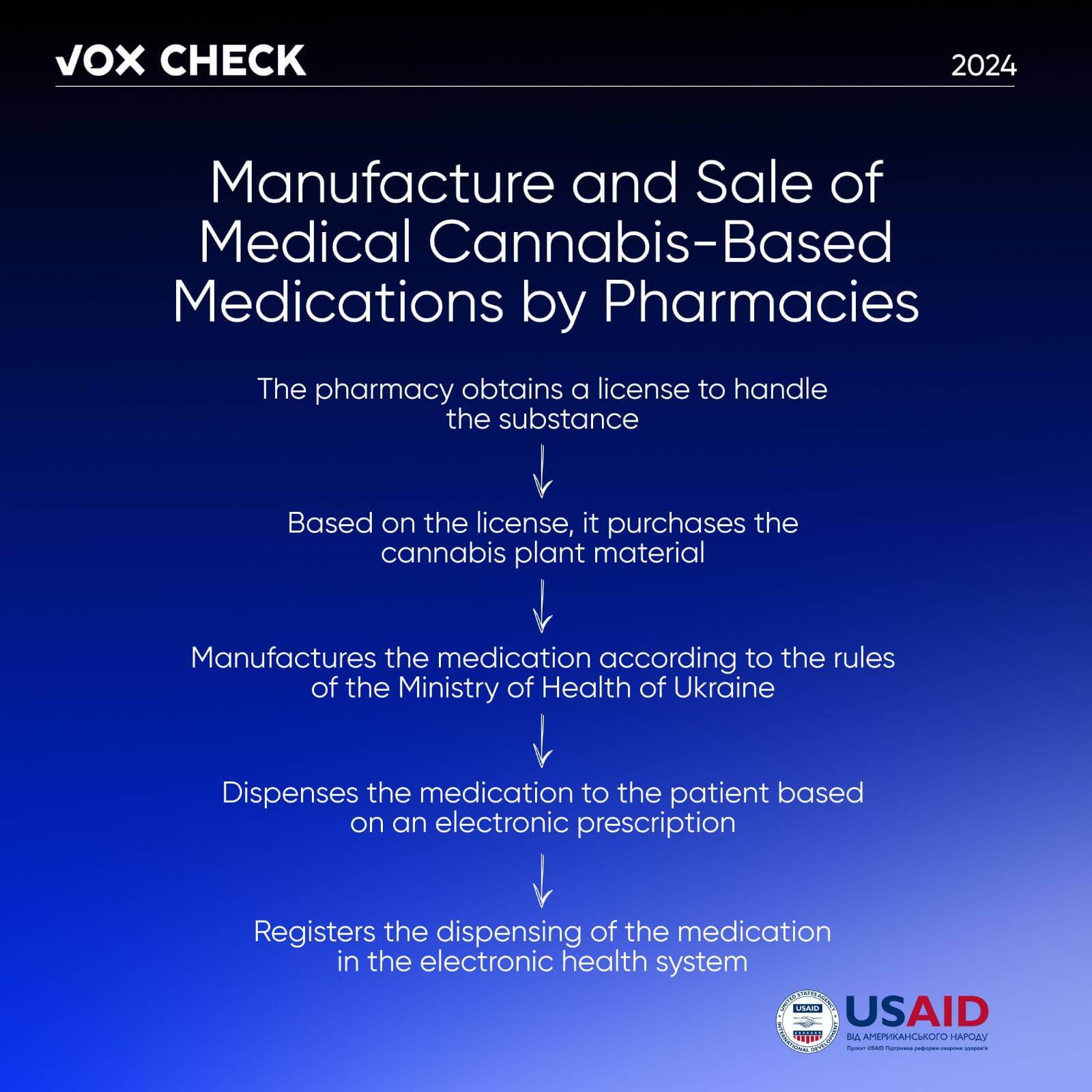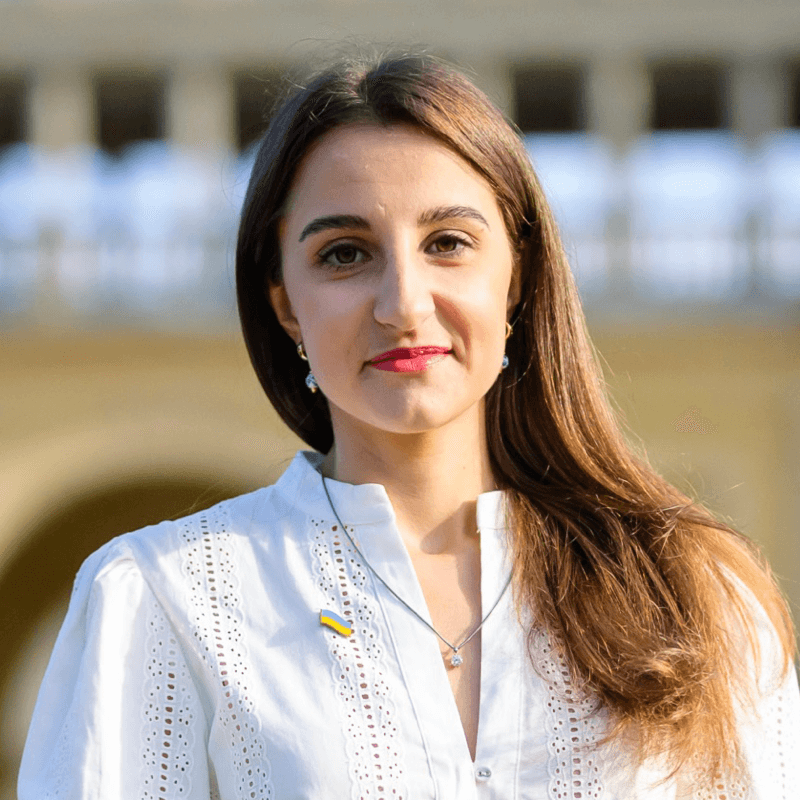A common tactic of the Russians is to use foreign media to spread narratives favorable to themselves. This allows “necessary” theses to penetrate the Ukrainian information space under the guise of “independent sources.” Typical methods also include distorting and exaggerating real facts. They took advantage of this by spreading a manipulative article from the German publication Junge Welt, which has repeatedly disseminated narratives similar to those of Russia, and by stoking fears of a new pandemic under the pretext of regular WHO meetings.
With the support of the USAID Health Reform Support project, VoxCheck analyzes and refutes public health narratives spread in the information space of Ukraine, Belarus, and russia on a weekly basis.
Disinformation: Ukraine has become a global hub for drug trafficking
Russian Telegram channels continue their wave of discrediting Ukraine. This time, they are retelling an article from the German publication Junge Welt, which claimed that Ukraine has supposedly become a global hub for drug trafficking. The author of the article questions the ultimate goal of “marijuana legalization” in Ukraine and suggests that President Volodymyr Zelenskyi might have legalized this substance out of personal “enthusiasm”. The Russians support their assertions with a report from the Global Initiative against Transnational Organized Crime, which allegedly states that amidst “failures”, Ukrainian military personnel are becoming easy “prey” for drug lords.
Screenshot of the post
What’s the reality?
On May 10, 2024, the publication Junge Welt indeed published an article that compiled typical Kremlin narratives. It discussed Ukrainian military personnel who are allegedly being sent drugs in various ways, including medical cannabis, for which Volodymyr Zelenskyi has come under criticism. The author claims that the president himself has “problems” with drugs. The publication also distorted the real facts about drug circulation in Ukraine as noted in the report by the Global Initiative against Transnational Organized Crime (GITOC). Junge Welt is a pro-Russian media outlet and has previously spread fakes.
Among all the reports on the GITOC website, we found a document analyzing the circulation of synthetic drugs in the global market, published on March 24, 2024. The organization states that since the beginning of the large-scale invasion, cases of synthetic drug use have increased, including among military personnel. However, this applies not only to Ukrainian but also to Russian soldiers, which Kremlin media conveniently forget to mention.
The authors of the report note that some narcotic substances are ordered online and delivered to consumers by mail. However, the document does not state that drugs are sent specifically to Defense Forces military personnel in this manner. Nor are they called “easy prey” for drug lords, as the Russians claim. Previously, we have already debunked false statements by disinformation spreaders, claiming that the Ukrainian government “distributes” drugs to the Armed Forces of Ukraine.
Additionally, Russia actively uses the tactic of mirroring, accusing Ukraine of what it does itself. For example, in the aforementioned document, Russia ranks 7th among the countries with the most significant influence on the synthetic drug market, whereas Ukraine is not on this list.
Additionally, the report does not refer to Ukraine as a “hub” for drug trafficking. As stated in the document, drug lords previously transported drugs from Afghanistan to EU countries through the Odesa port. After its operations were restricted, only a small amount of heroin reaches the Ukrainian market via Russia, with other supply routes having ceased. The report specifically discusses synthetic drugs and does not mention medical cannabis.
Moreover, in 2024, Ukraine legalized not recreational marijuana, which causes addiction, but medications based on medical cannabis. The main difference is that medical cannabis is intended for therapeutic purposes. It contains almost no psychoactive substances, or if it does, the amount of tetrahydrocannabinol (THC) is very low. THC is the substance predominant in regular cannabis that affects a person’s psycho-emotional state, leading to intoxication. Medical cannabis does not produce the same effect as regular marijuana and is not of interest for recreational use. Medical cannabis is effective for reducing pain, spasms, and treating PTSD, among other things. Medications based on medical cannabis are prescribed to people with epilepsy, cancer patients, individuals with Tourette syndrome, and others.
In previous editions, we have repeatedly debunked common myths regarding the legalization of medical cannabis in Ukraine.
Furthermore, the Ministry of Health of Ukraine emphasizes that the circulation and production of cannabis-based medications will be strictly controlled by the state. Pharmacies that wish to produce such medications must first obtain a license to handle narcotic substances and then acquire raw materials based on this license. The manufacture and sale of finished medical cannabis products will be strictly by electronic prescription. The dispensing of these medications will be registered in the electronic health system.
Source: Ministry of Health of Ukraine
Disinformation: WHO is planning the next pandemic
Information is being spread online claiming that on May 27, the World Health Organization will sign a “pandemic agreement” with many countries around the world, including Ukraine. Additionally, it is mentioned that since 2017, Ukraine has had a “law on experiments” in effect.
What’s the reality?
On May 27, 2024, the 77th session of the World Health Assembly will begin. According to the preliminary agenda, the session is scheduled to review the following blocks:
- Ensuring universal health coverage for an additional 1 billion people;
- Enhancing more effective emergency response protection for an additional 1 billion people;
- Ensuring the improvement of health and well-being for an additional 1 billion people;
- Enhancing the effectiveness and efficiency of the WHO and the quality of support it provides to countries.
Within the framework of the second block, an Intergovernmental Negotiating Body will operate to prepare and finalize the draft of a convention, agreement, or other international instrument of the WHO on pandemic prevention, readiness, and response measures. This in no way implies that humanity is facing a new pandemic soon.
The body was established in December 2021 at the second special session of the World Health Assembly. According to the WHO, this was necessary to ensure better preparedness and protection of communities, governments, and all sectors of society — both within countries and globally — to prevent future pandemics. Since then, work has been underway on the agreement’s text. The final results are expected to be presented at the 77th session of the World Health Assembly.
Additionally, the signing of such an agreement does not compel a country to adhere to all the norms and rules stipulated within it; they are not legally binding. It is an international agreement, and states, in implementing it, take into account their national laws and regulations.
As for the Ukrainian “law on experiment,” it likely refers to Law of Ukraine No. 2362-VIII “On Amendments to Certain Laws of Ukraine regarding the Powers in the Field of Environmental Protection,” adopted in 2018. This law has already been subject to manipulation by conspiracy theorists and anti-vaxxers. In reality, this law regulates the transfer of powers in the field of environmental protection to local authorities.
The term “experiment” in the law relates to the organization of the work of the Cabinet of Ministers. In the history of the law, we see that it led to the adoption of two Cabinet resolutions: “On the Implementation of an Experimental Project to Improve the Efficiency of the Organization of the Planning Processes of the Cabinet of Ministers of Ukraine” (2021) and “On the Implementation of an Experimental Project to Ensure Continuous Provision of Qualified Electronic Trust Services in Case of Replacement of Providers of Such Services” (2020).
The first resolution pertains to the implementation of a new system for planning and evaluating the actions of the government — the “Unified Information System for Planning and Monitoring the Activities of the Cabinet of Ministers of Ukraine”. The second resolution transferred the status of a qualified provider of electronic trust services from the state enterprise “National Information Systems” to the state enterprise “Diia”. The term “experiment” relates solely to the optimization of government work and changes in electronic registries, not the implementation of “plans” regarding the COVID-19 pandemic.
This information piece was produced with the assistance of the United States Agency for International Development (USAID), provided on behalf of the people of the United States of America. This article’s content, which does not necessarily reflect the views of USAID, the United States Government, is the sole responsibility of Deloitte Consulting under contract #72012118C00001.
Attention
The authors do not work for, consult to, own shares in or receive funding from any company or organization that would benefit from this article, and have no relevant affiliations





